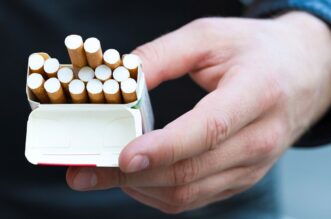Getaway in Brooklyn was full for a Saturday night after I got here to strive for my first “shrub” — an acidic beverage crafted from vinegar, fruit, sugar, membership soda, and 0 alcohol.
I ordered a carrot-and-ginger shrub and hoped it’d be palatable. I changed into pleasantly surprised, drank everything, and, voila, was now not even tipsy. Even more exciting: my bill. It was a trifling $15 for 2 beverages and a bread bowl — to soak up the non-alcoholic drinks of the path. Getaway is a sober bar, a brand new type of dry nightlife choice cropping up in New York City. The idea is to offer stores for those who want to socialize in a bar-like location, however, while not having to drink alcohol. They are part of a larger trend. People are paying extra attention to their mental fitness and wellness, and many Americans are especially seeking to reduce their alcohol consumption. People of every age are consuming much less beer, while millennials are ingesting much less on average. And Silicon Valley is taking a word, with tech groups reevaluating their alcohol rules and buyers seeking to capitalize on folks who decide not to drink.
“It’s such a part of the way of life, especially right here in San Francisco, that I might go out for dinner and feature 3 beverages every day,” Silicon Valley entrepreneur Justin Kan, the CEO of regulation-tech startup Atrium, told CNN Business. He stated he has visible a shift currently within his tech circle. “I turned up at a dinner with quite a few techs human beings last night, and possibly half of the humans weren’t drinking.” Kan introduced last month, in a submit on Twitter, that he changed into giving up alcohol. He referred to it as a bad dependency that had gotten in the way of his experiencing life. It wasn’t exactly uncommon for Kan to share private information about himself: He would as soon as he livestreamed his life via the startup he co-founded in 2007, known as Justin. Television, which ultimately became Twitch, the famous streaming platform for gamers now owned by Amazon.
On the same day he tweeted, Kan launched a group on the chat app Telegram to hook up with others who have been deciding to get sober from alcohol. He didn’t assume that more than 1,000 people might be a part of it. New merchandise for the sober — and ‘sober curious’.Their sales of alcoholic beverages have been declining; large alcohol organizations, ranging from Heineken to AB InBev (the proprietor of popular beer brands, inclusive of Budweiser), see an opportunity: They’re investing in non- or low-alcohol liquids. So too, startup traders and entrepreneurs are hoping to cater to the “sober curious,” individuals who, for the sake of well-being, are reevaluating their relationships with alcohol and how regularly they drink.
The emergence of sober bars is one of the indicators that investor Anu Duggal factors in whilst speaking about the fashion of not consuming. Duggal, who’s based in New York City, said that like Kan, she is noticing “a number of those who are choosing not to drink.” Duggal’s firm, Female Founders Fund — which has subsidized famous consumer startups and Rent The Runway — is a recent investor in Kin Euphorics. Kin’s first product is a non-alcoholic beverage referred to as “High Rhode.” It is a part adaptogen (a nontoxic plant claimed to have de-stressing effects), component nootropics (a complement said to assist with cognitive functions), and part Botanics. On its website, the corporation notes that its statements have no longer been evaluated using the Food and Drug Administration. Its product is not supposed to diagnose, save you, deal with, or cure any sickness.
Rather than an indulgence, Kin reasons that the intake of its product is extra for “self-care after darkish.” It desires to create a new marketplace of products that do not include alcohol but are not weighted down with sugar. Kin is co-founded by Matthew Cauble, cofounder of Silicon Valley meal alternative startup Soylent, and Jen Batchelor, who serves as CEO. It has already attracted venture capital corporations, which include Canaan Partners, Refactor Capital, Weekend Fund, and Fifty Years, that target to put money into corporations that use business to remedy the world’s largest issues. The agency declined to disclose how much funding it has received. “Sober interest is a real issue,” Batchelor told CNN Business. Batchelor says Kin is attempting to create extra options for purchasers. Many people sense that their alternatives are either to go out and drink alcohol or live at home on their own. “If those are the two alternatives, then something is damaged,” she said. “You can do the ‘feel accurate’ thing and still be out at a bar, n; nevertheless, take a client out.” The organization is slated to launch its 2nd product later this month.









